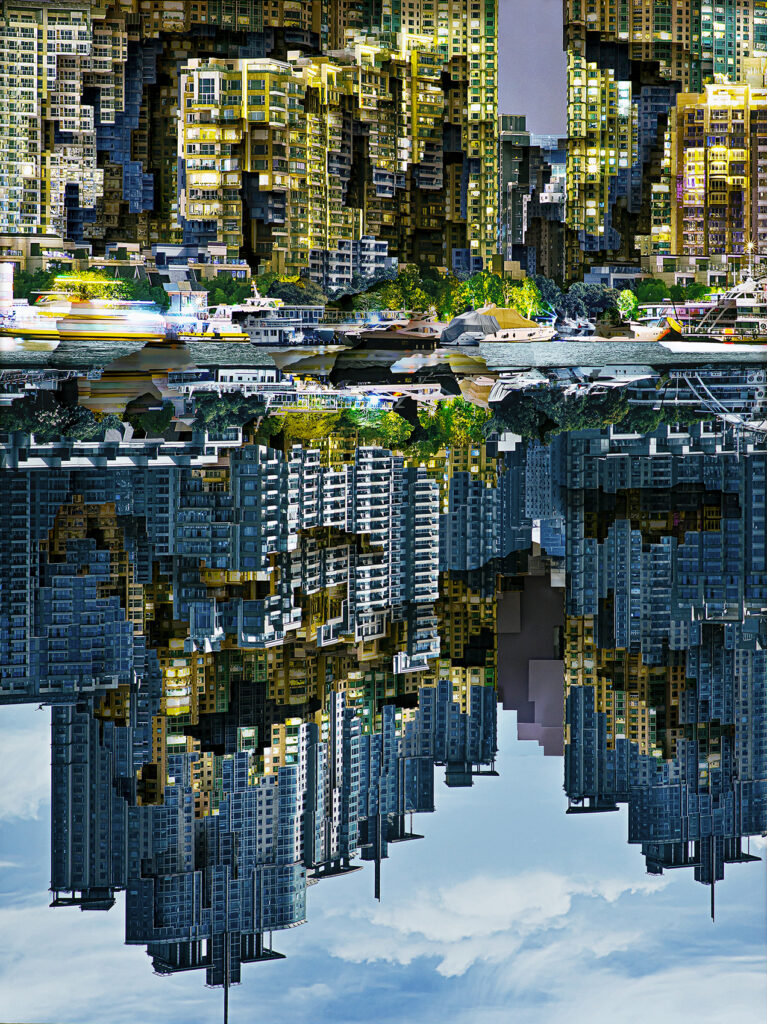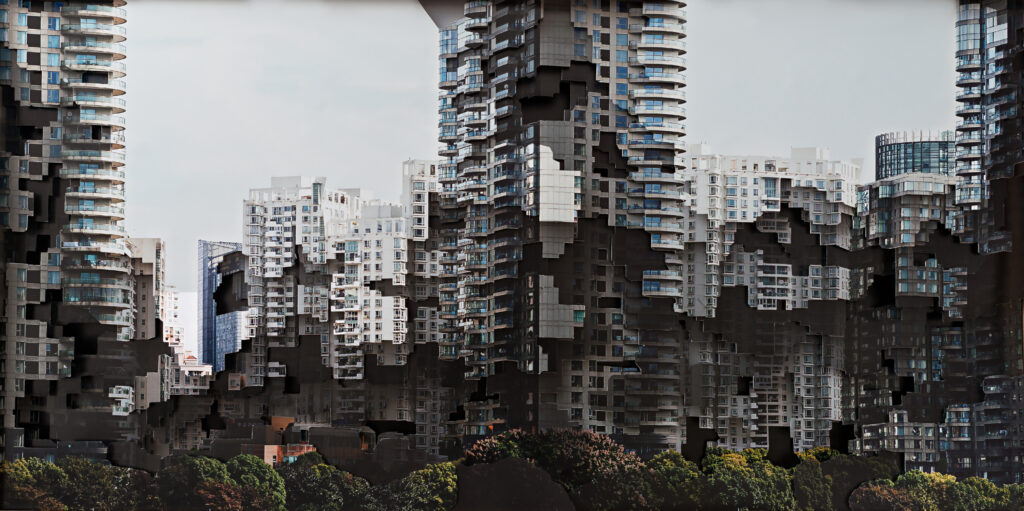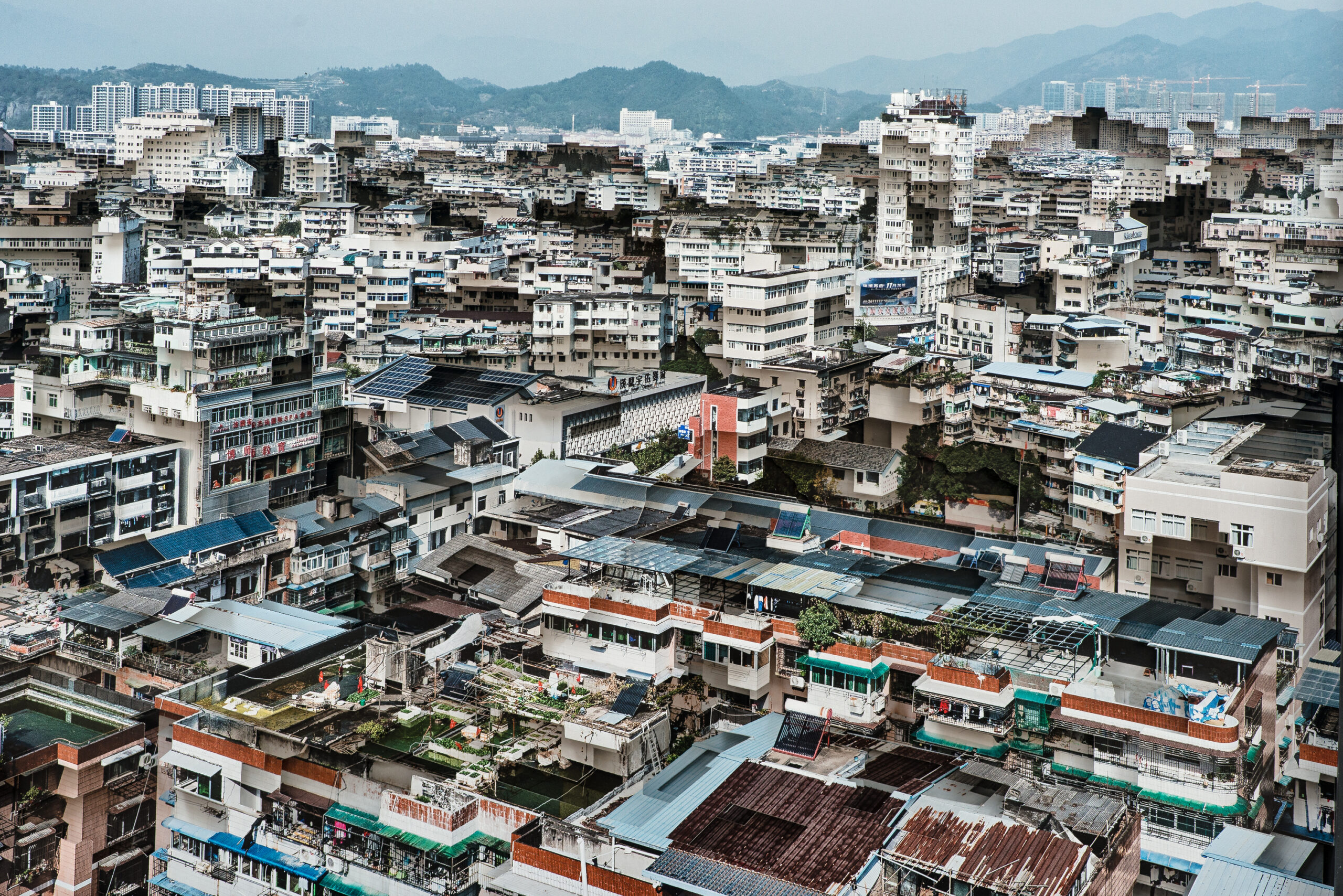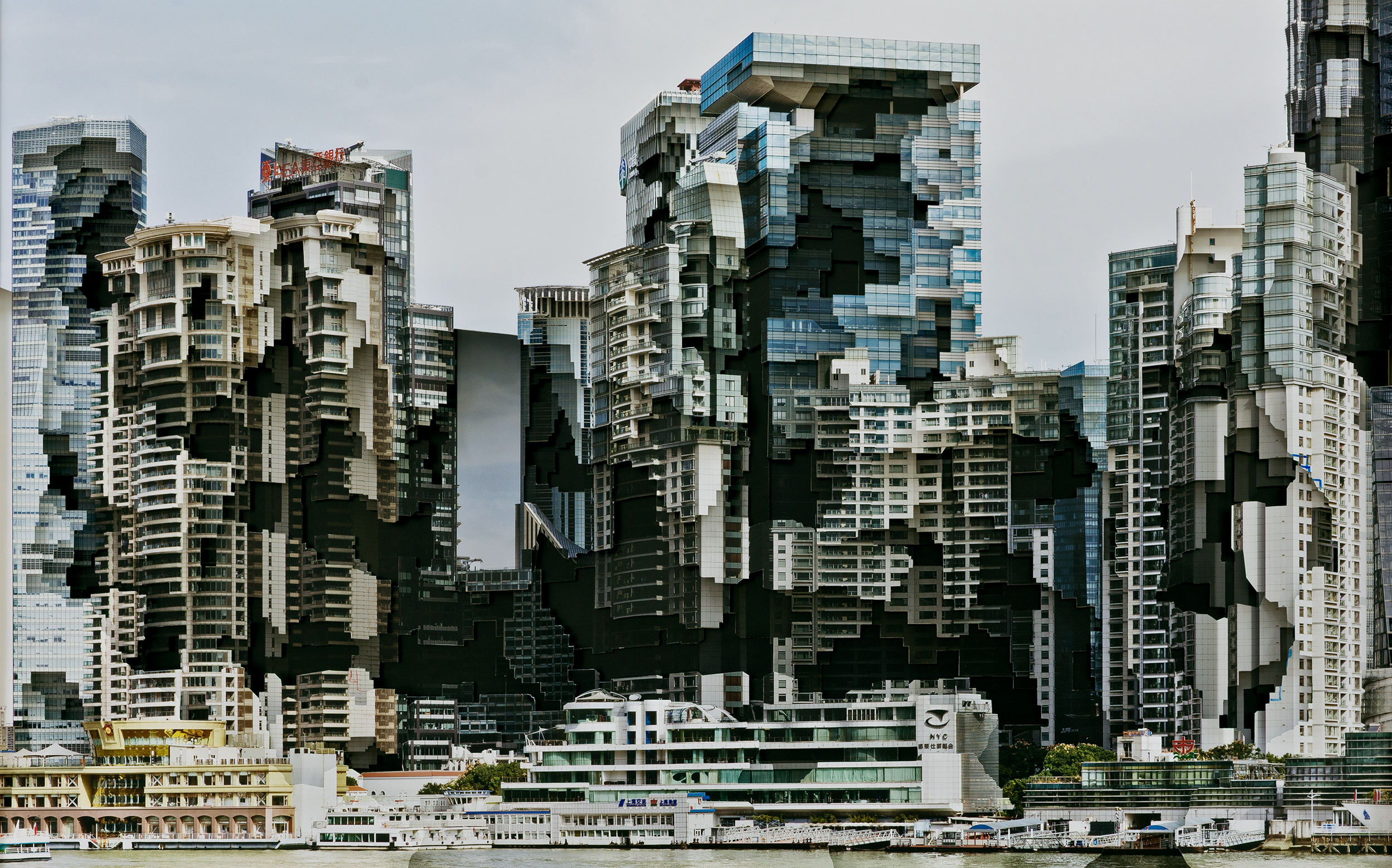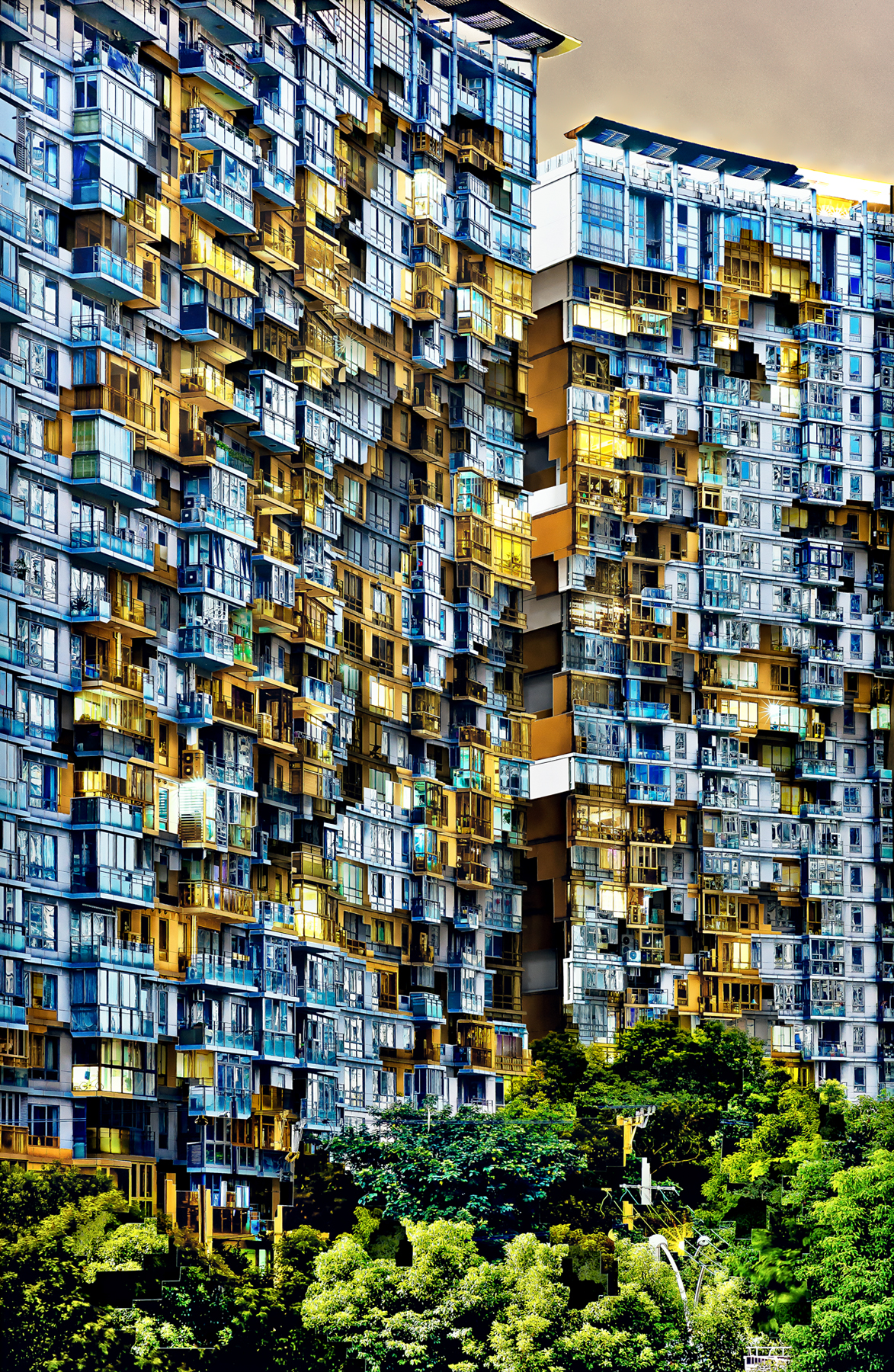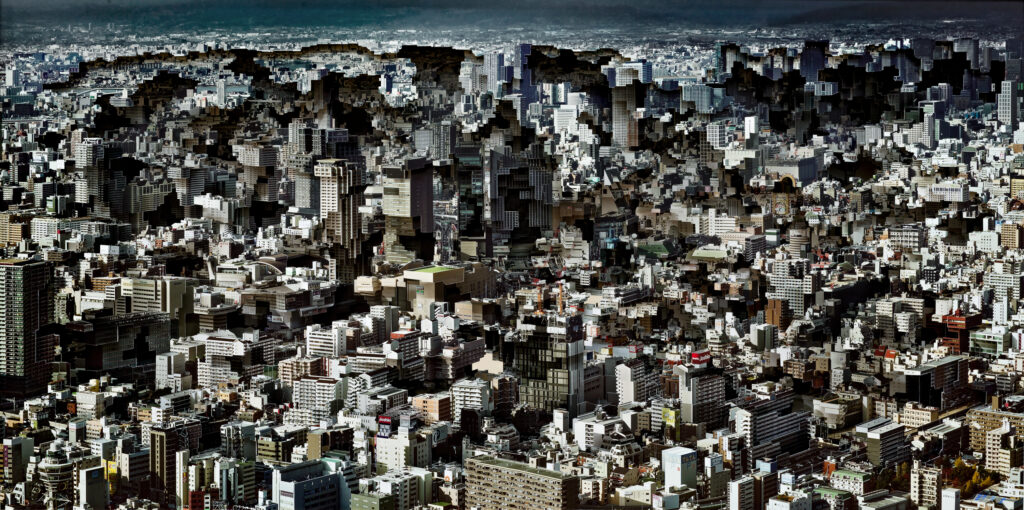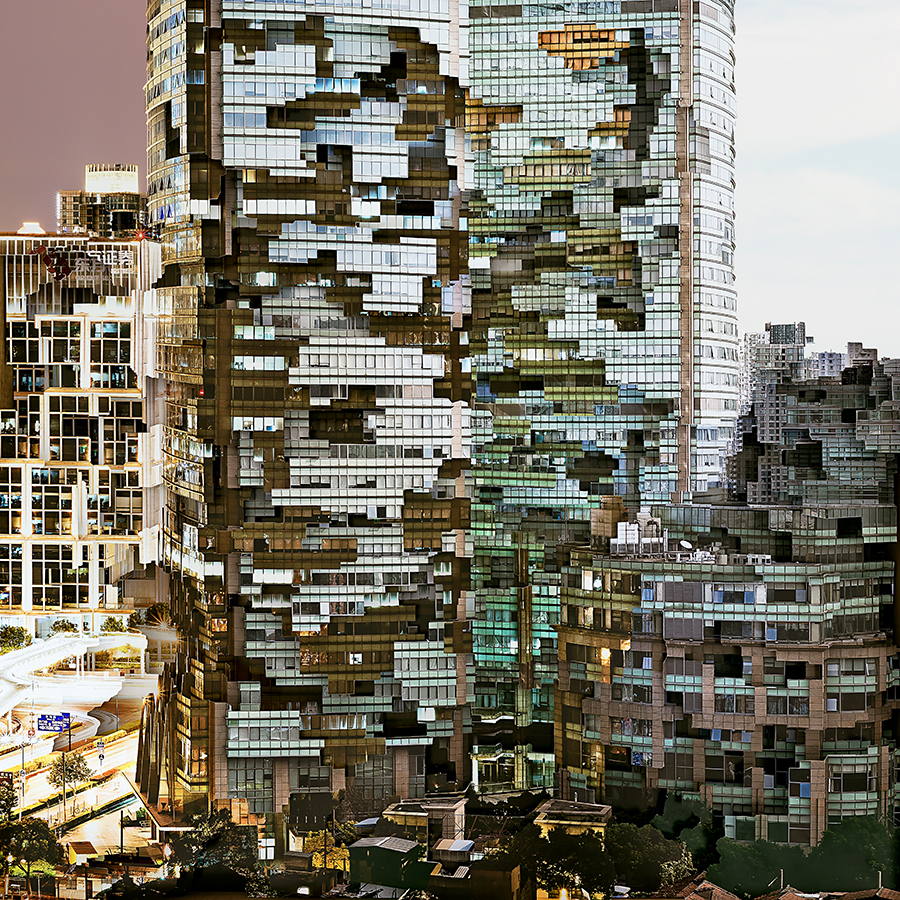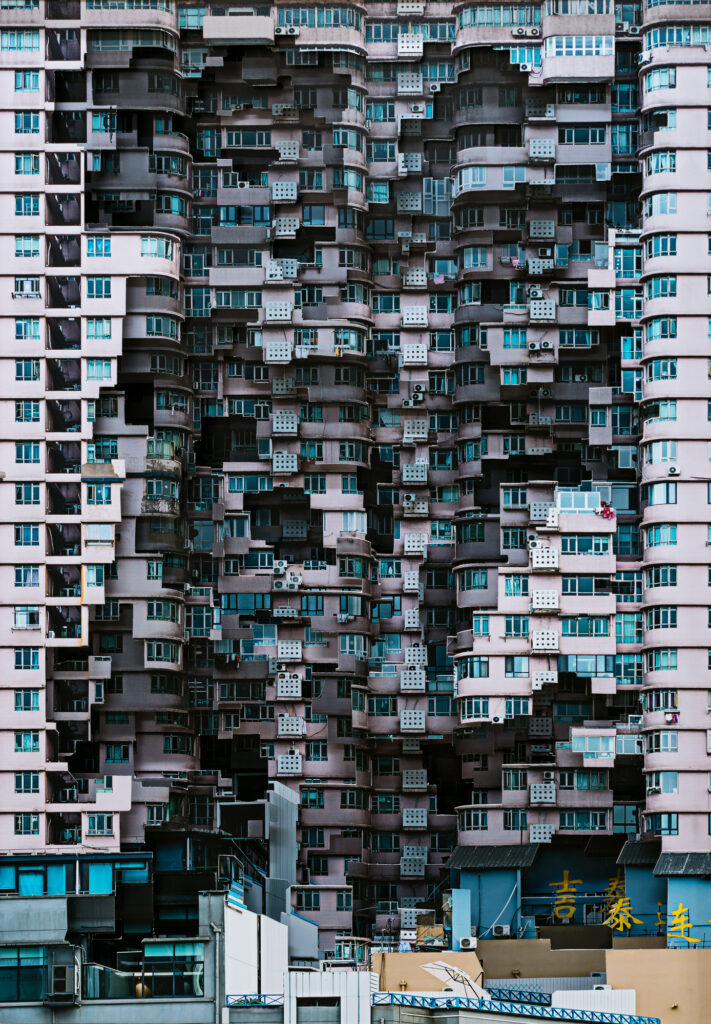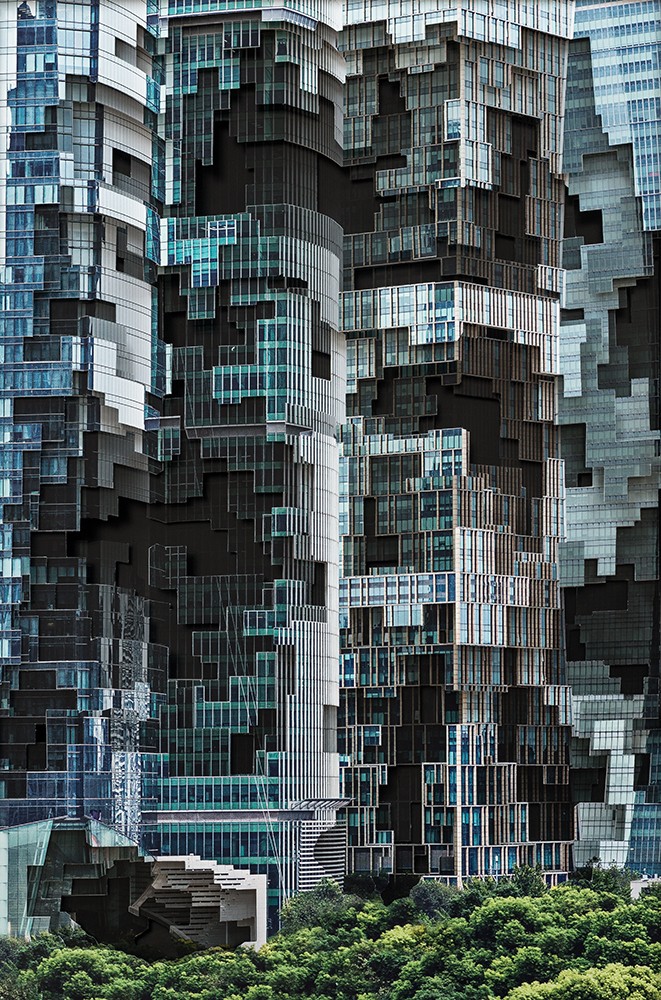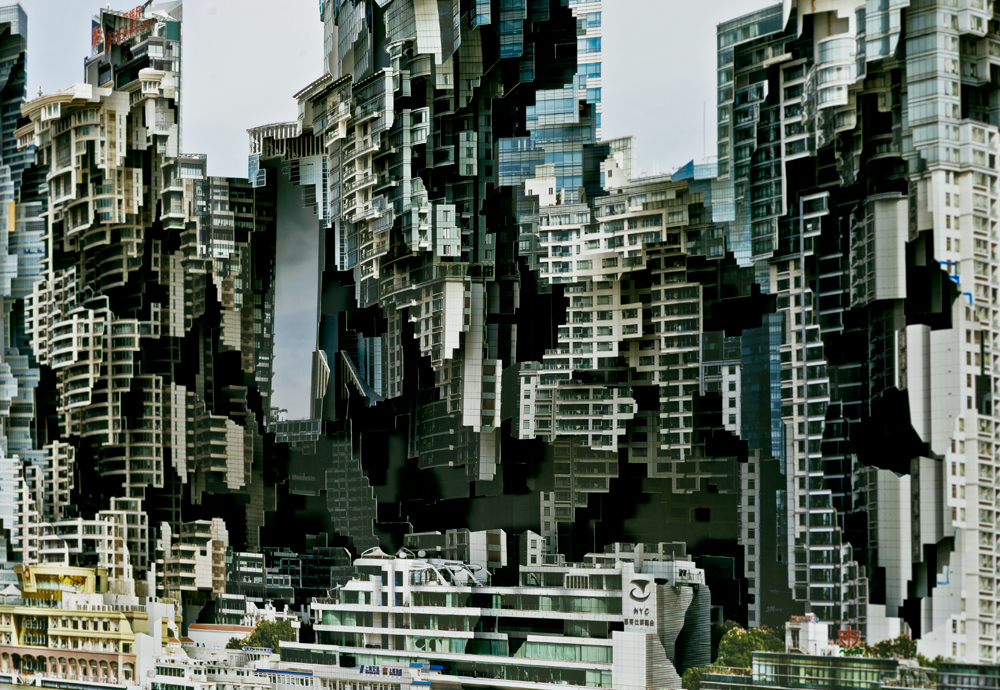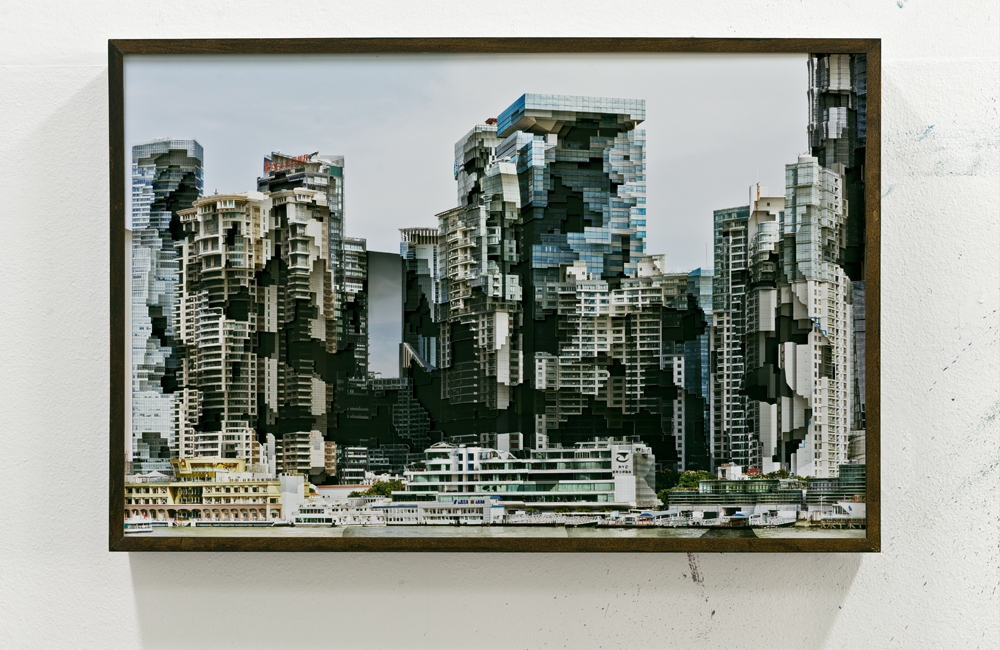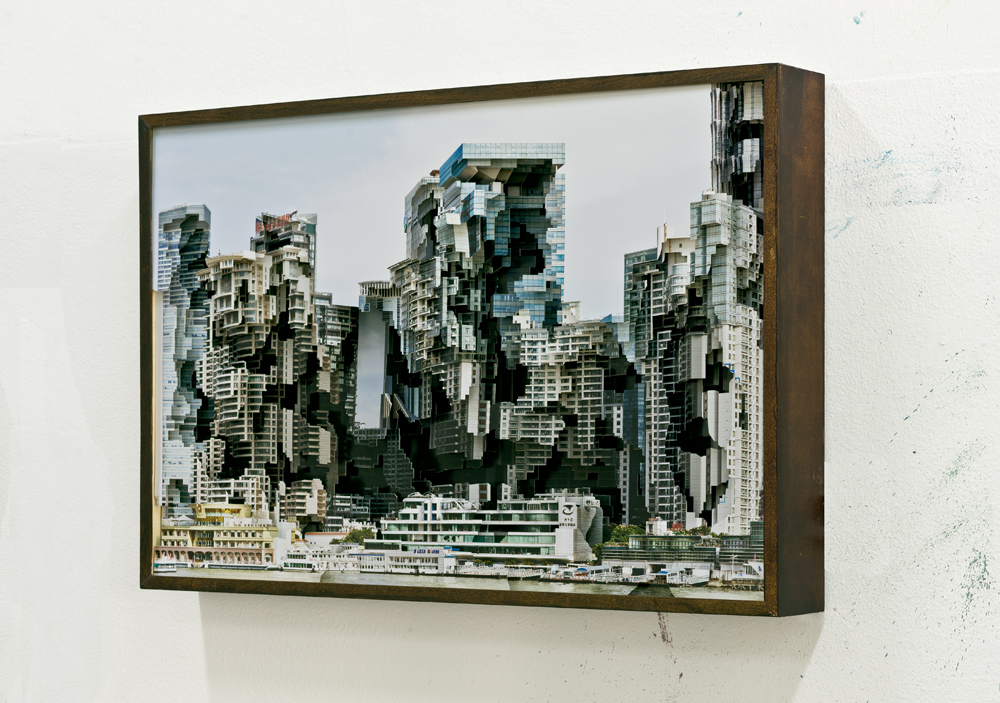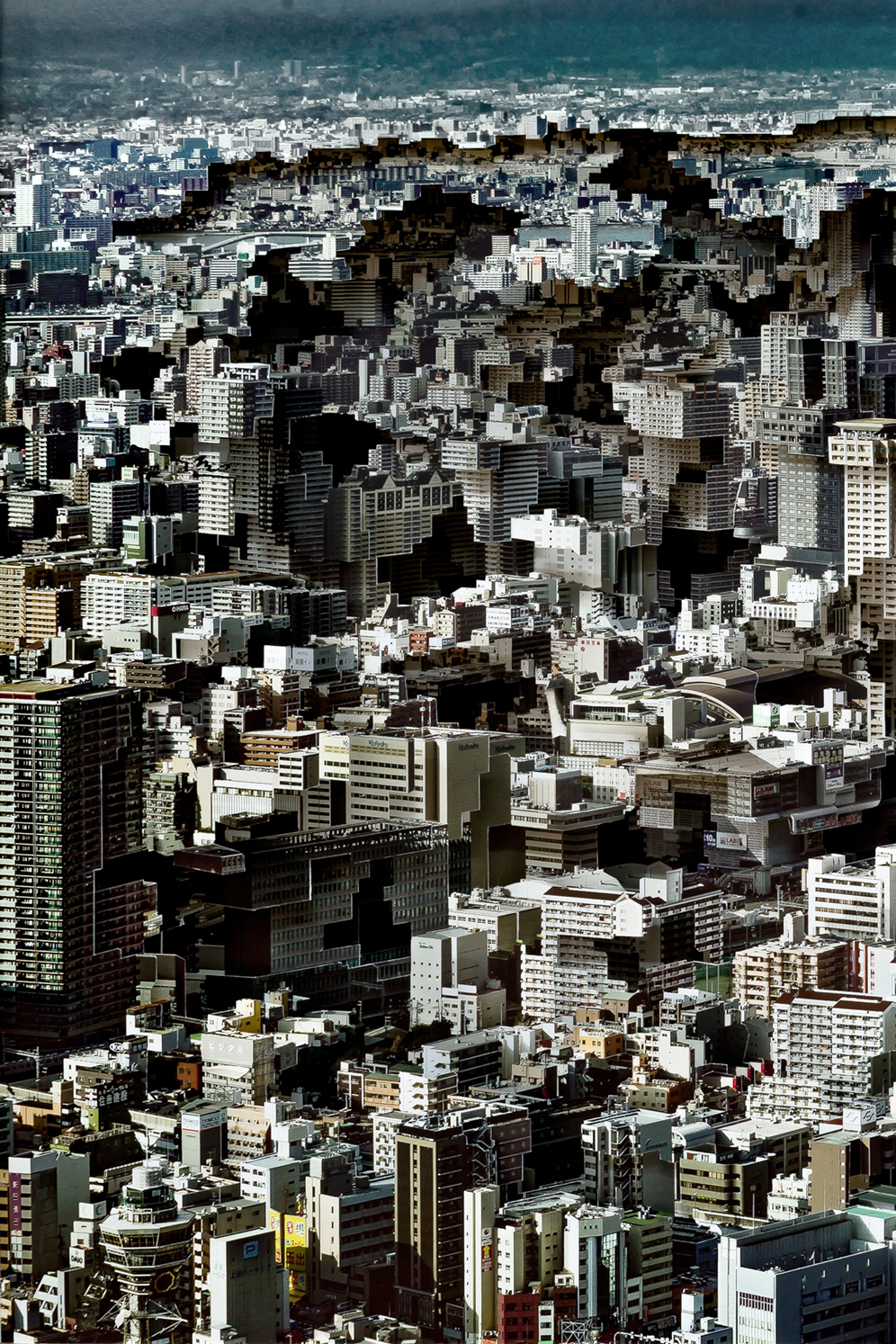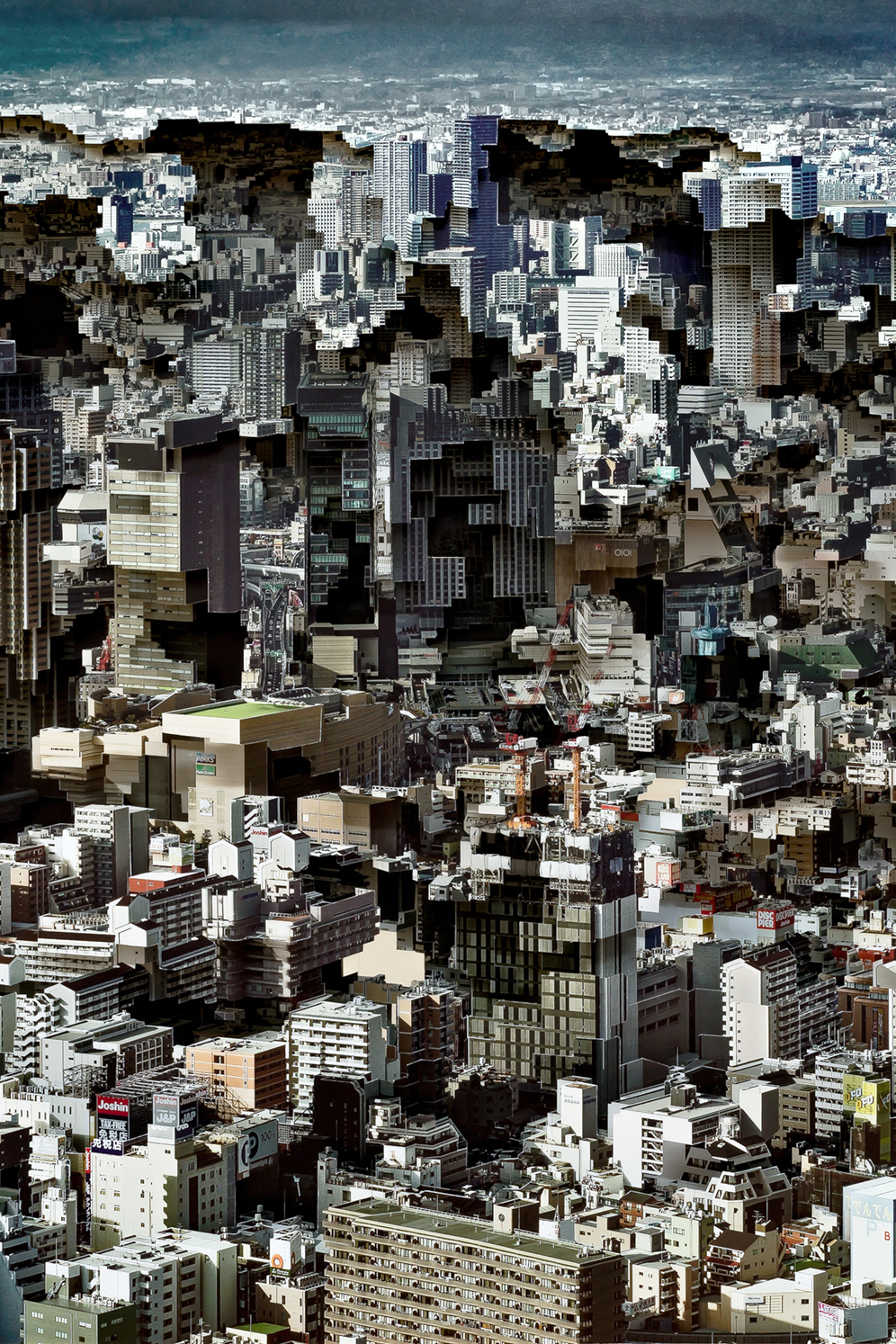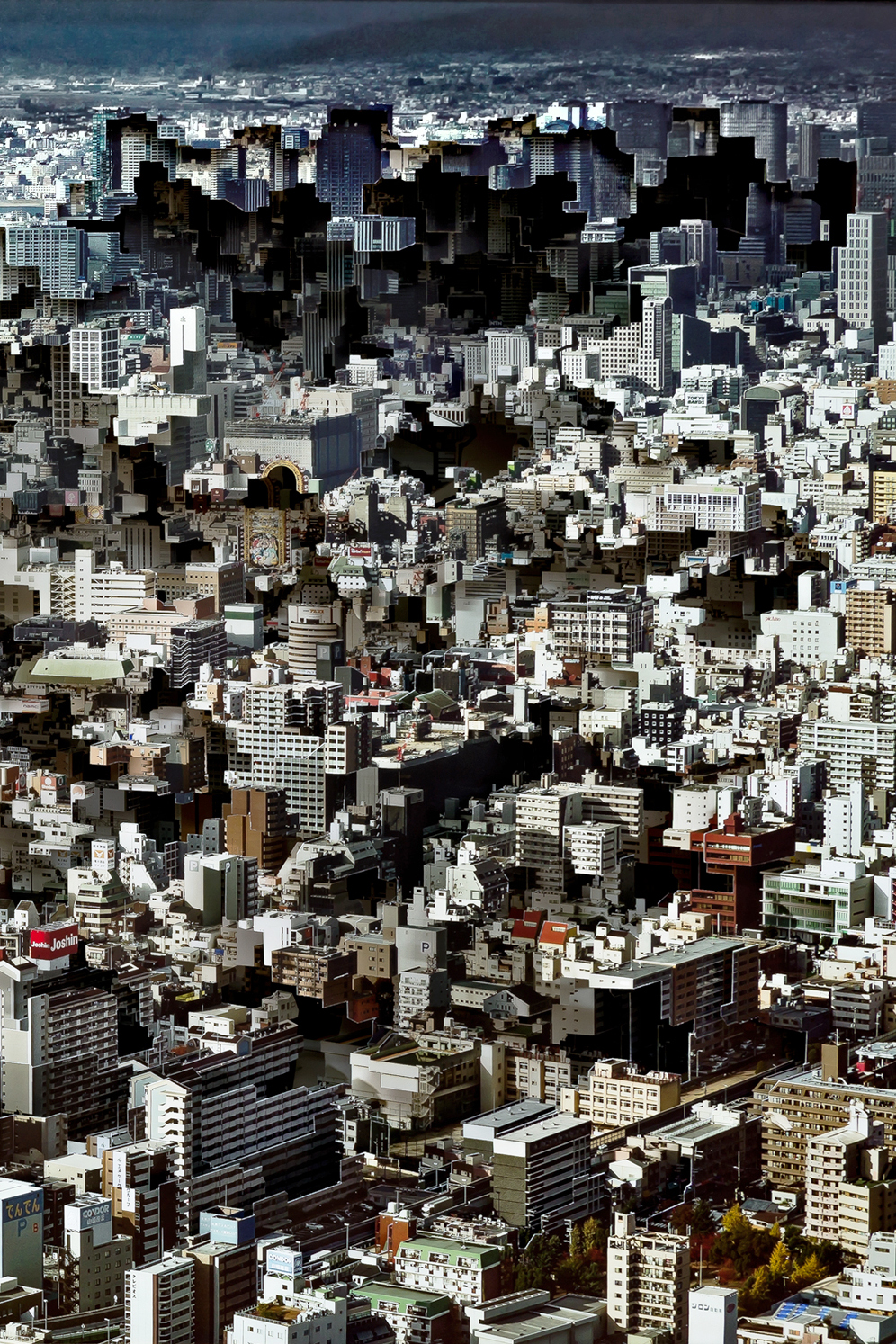The Ravestijn Gallery is pleased to present Anthropogenic Mass, the first solo exhibition of German artist Michel Lamoller with the gallery. The exhibition will comprise of unique, photographic relief works that make visible the mass of our man-altered world.
Anthropogenic Mass exists somewhere in between photography and sculpture. At a distance, the works on show appear to be deadpan photographs of impossibly dense cities; akin in some ways to Andreas Gursky’s images of commerce and industry. A few steps closer, however, and we realise that, unlike Gursky, Lamoller’s works are not photographs of man-made landscapes, but objects about man-made landscapes. Lamoller starts with a photograph, but that image is not then printed, framed and hung in the modernist sense of a picture. Instead, Lamoller prints the same photograph multiple times, before stacking them on top of each other like the bellows of an accordion. Lamoller then uses a scalpel to meticulously cut away sections of each photograph — a process that can take several weeks. Each photograph becomes a single stratum in a unique relief work, with each absent section revealing the image behind. In doing so, Lamoller creates works that are photographic, but not quite photography. Or, put another way, photography here is not the final work of art but a material, something for Lamoller to cut into, give order to and build with. What emerges from this process are images that have been expanded and given presence, extending out into the gallery space before receding into themselves, no longer bound by a flat surface.
This lack of flatness instils a certain dynamism into the works of Anthropogenic Mass. We don’t (or perhaps can’t) simply scan across the surface of each but peer into them, experiencing real, tangible depth which, in turn, allows us to comprehend physicality in a way that is not possible with a two-dimensional photograph. It is, in short, an active affair; one that demands time — and importantly presence — from us, the viewers, to unearth the details of each image and experience it wholly. Without standing in front of Lamoller’s work, that experience is lost. They cannot be downloaded and printed. They cannot be reproduced like a flat photograph. As such, Anthropogenic Mass as an exhibition is more than just an opportunity to see Lamoller’s work; it is a precondition to experiencing it.
This way of creating is particularly apt for Anthropogenic Mass, an exhibition that lays bare the weight of humans’ unending need to build, create and expand. Its title, which means the mass of all objects made by humans, refers to a recent study from the Weizmann Institute of Science, which estimates that anthropogenic mass now equals all biomass on Earth. It is a bewildering, poignant yet salient idea — plastic equal to animals, concrete equal to trees. The feeling of scale that accompanies this realisation is importantly, and deftly, mirrored in Lamoller’s work. It too has a palpable feeling of scale, made real by the hand-cut reliefs that protrude towards us. By reimagining how we can experience mass through images, Lamoller brings a new weight to the consequences of our actions, asking “how will we see the world when nature becomes the minority?”
What makes Anthropogenic Mass even more pertinent is that it runs against the grain of how we experience the Anthropocene today. Tiny screens, gazed at whilst we commute or in the safety of our homes, have become the default means of experiencing it, and yet they remain inadequate to spark conversation and change. Lamoller, however, has created something that insists on us paying attention. This is the crux of Anthropogenic Mass: a new, slower and more tangible way to ask questions of something pressing, timely and universal. As work that can only truly be experienced in a physical space, this exhibition feels necessary. As a conversation that’s urgency grows with every brick laid, this exhibition feels necessary.
